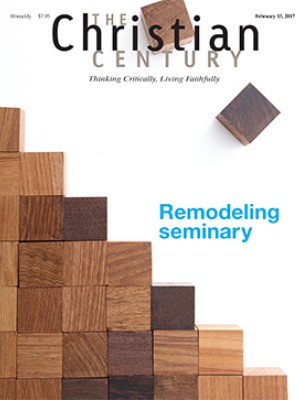Good habits shape good ministers
Even the most mechanical routines can transform our inner lives.

I hated math as a kid. Arithmetic practically made me ill. Story problems were my archenemy. Neither the logic nor the joy that others derived from math class made any sense to me. I loved textbooks that had the answers in the back, which meant I could try to work in reverse and figure out how to arrive at those answers. The problem with that strategy was that it was devoid of discipline and absent of methodology. One doesn’t really learn math without discovering disciplined habits that move one from problem to answer.
Most of the really important things we do in life we do according to habits acquired over long stretches of time. A good life imbued with virtue is one shaped by intentional acts that are too precious to be left to haphazard behavior. Virtues don’t just magically appear in us the day someone cuts our umbilical cord. We learn generosity, reverence, and love over time, and we learn qualities such as these from other people. Transforming the virtues we observe into personal disciplines that become ingrained habits—this is what shapes an interior self and external being worth knowing. It’s what readies us for serving the Lord most capably.
Read our latest issue or browse back issues.
Several articles in this issue point to the changing landscape of seminary education. Formal training for pastoral ministry is moving closer and closer to the congregational setting. This has obvious merit, though practical learning in any profession can never fully replace the intellectual discovery that comes through rigorous training of the mind. Seminaries appear particularly good at delivering content, though by nature less well equipped to grow disciplined habits and faithful practices in emerging pastors.
This opportunity to help young pastors foster sound personal habits and practices is why our congregation has been hosting a pastoral residency program for the last 12 years. What I seek to grow in others and in myself, through this program, is not a theory of pastoral ministry but rather a way of life—a way of life highly conducive to delighting in God and other people in a daily way. This life comes only through diligent practice. The best pastors I know are those who possess a desire to learn from others. They have a teachable spirit, a thirst for growing virtue, and a lifelong eagerness for feedback. The least admirable pastors I know are those determined to appear in command, display unwarranted amounts of self-assurance, and exercise authority they believe is owed the office.
Simply wanting to be good at ministry is like wanting to be good at driving, or marriage, or basketball. Fulfilling the desire requires persistent training. Only through disciplined focus on often mundane routines do we acquire habits and practices that end up shaping the people we are within. How will pastors help others enjoy the Christian life if they aren’t themselves grounded in unself-conscious habits and practices of beautiful variety?
The great cellist Pablo Casals was famous for practicing musical scales several hours a day for his entire life. When asked why he still practiced these at age 93, Casals responded, “Because I think I’m making progress. . . . It’s not a mechanical routine but something essential to my life.” We become better people (and better pastors) when we discover that the essence of life is comprised of what we once presumed were only mechanical routines.
A version of this article appears in the February 15 print edition under the title “Habit forming.”







